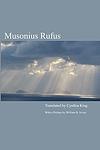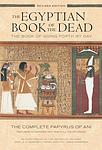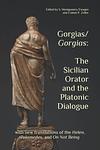The Greatest "Ancient Literature, Nonfiction, Ancient History" Books of All Time
Click to learn how this list is calculated.
This list represents a comprehensive and trusted collection of the greatest books. Developed through a specialized algorithm, it brings together 300 'best of' book lists to form a definitive guide to the world's most acclaimed books. For those interested in how these books are chosen, additional details can be found on the rankings page.
Genres
Ancient Literature refers to the body of written works produced during the earliest periods of human history, typically up until the fall of the Roman Empire in the 5th century AD. This category encompasses a diverse array of texts, including religious scriptures, epic poetry, philosophical treatises, historical accounts, and dramatic plays, originating from various civilizations such as the Sumerians, Egyptians, Greeks, Romans, Chinese, and Indians, among others. Notable works within this genre include the "Epic of Gilgamesh," Homer's "Iliad" and "Odyssey," the plays of Sophocles and Euripides, the philosophical writings of Plato and Aristotle, the "Mahabharata" and "Ramayana" from India, and the foundational texts of Confucianism and Taoism in China. Ancient literature provides invaluable insights into the thoughts, beliefs, and cultural practices of early societies, and continues to influence modern storytelling, philosophy, and ethics.
Ancient History is a category of books that focuses on the study of human civilizations and societies that existed in the distant past, typically before the Middle Ages. This genre encompasses a wide range of topics, including the rise and fall of empires, the development of religions and cultures, the evolution of technology and science, and the political and social structures of ancient societies. Ancient History books provide readers with a glimpse into the lives and experiences of people who lived in a vastly different world than our own, offering insights into the origins of modern civilization and the forces that shaped our world today.
Countries
Date Range
Reading Statistics
Click the button below to see how many of these books you've read!
Download
If you're interested in downloading this list as a CSV file for use in a spreadsheet application, you can easily do so by clicking the button below. Please note that to ensure a manageable file size and faster download, the CSV will include details for only the first 500 books.
Download-
1. The Republic by Plato
"The Republic" is a philosophical text that explores the concepts of justice, order, and character within the context of a just city-state and a just individual. It presents the idea of a utopian society ruled by philosopher-kings, who are the most wise and just. The dialogue also delves into theories of education, the nature of reality, and the role of the philosopher in society. It is a fundamental work in Western philosophy and political theory.
-
2. The Histories of Herodotus by Herodotus
"The Histories of Herodotus" is an ancient text that provides a comprehensive account of the Greco-Persian Wars. It is often considered the first work of history in Western literature. The author, often referred to as the 'Father of History', provides a narrative that not only discusses the conflicts between the Greeks and Persians, but also delves into the customs, geography, and history of each civilization. This detailed and pioneering work has greatly contributed to our understanding of the ancient world.
-
3. De Rerum Natura by Lucretius
"De Rerum Natura" is a long didactic poem written in the first century BC, which explores Epicurean philosophy and the nature of the universe. The text delves into topics such as the nature of the gods, the atomic structure of the universe, human sensation and thought, and the fear of death. The author argues that understanding the physical world can free humans from superstition and fear, leading to peace of mind and true happiness.
-
4. Symposium by Plato
In "Symposium", a group of notable men including philosophers, playwrights, and politicians gather at a banquet and decide to each give a speech in praise of the god of love. Each speech presents a different perspective on love, ranging from the purely physical to the spiritual. The dialogue culminates with the speech of Socrates, who presents a philosophical view of love as a means of ascending to contemplation of the divine.
-
5. Apology by Plato
This philosophical text is a dialogue of Socrates' defense in 399 BC against the charges of 'corrupting the young, and by not believing in the gods in whom the city believes, but in other daimonia that are novel.' The dialogue is Socrates' defense at his trial and is his final public statement before his execution. In it, he discusses the moral and philosophical justification for his actions and beliefs, ultimately leading to his conviction and death.
-
6. Fragments by Heraclitus
"Fragments" is a collection of philosophical musings and theories from an ancient Greek philosopher. The book explores a wide array of topics, including the nature of the universe, the human mind, and the relationship between the two. Often cryptic and paradoxical, the author's thoughts challenge traditional perceptions of reality and encourages readers to think deeply about their own existence and understanding of the world.
-
7. I Ching by China
This ancient Chinese text is a divination system and book of wisdom. It provides guidance for moral and ethical decisions through 64 hexagrams, which are six-line figures made up of broken and unbroken lines. Each hexagram represents a specific situation or state of affairs, and the text provides interpretations and advice for each. The book has been used for centuries as a tool for decision-making, prediction, and gaining deeper understanding of situations and relationships.
-
8. The Marriage Of Cadmus And Harmony by Roberto Calasso
"The Marriage of Cadmus and Harmony" is a unique exploration of Greek mythology. The narrative follows the journey of Cadmus, a Phoenician prince, and his marriage to Harmony, a goddess. The book delves deep into the complex and rich tapestry of Greek myths, presenting them as a continuous and ever-evolving story. It offers fascinating insights into the gods, heroes, and monsters of ancient Greece, while also drawing connections to modern life and thought.
-
9. Bhagavad Gita by Unknown
The book is a 700-verse Hindu scripture that is part of the Indian epic Mahabharata. It takes the form of a dialogue between Prince Arjuna and the god Krishna, who serves as his charioteer. On the battlefield of Kurukshetra, just as the war is about to begin, Arjuna is filled with doubt and moral dilemma about fighting in the battle. Krishna imparts spiritual wisdom and guidance to Arjuna, addressing his concerns and leading him through a profound discourse on various philosophical concepts, including the nature of life, the soul, and one's duties. The text covers topics such as righteousness, devotion, and the paths to spiritual liberation, ultimately encouraging Arjuna to rise to his duty as a warrior with the understanding that the true self is eternal and beyond physical conflict.
-
10. Titi Livi Ab urbe condita libri by Livy
This historical work offers a comprehensive narrative of the history of Rome, from its mythical origins to the reign of the Roman Emperor Augustus. The author chronicles the major political, military, and social events of the Roman Republic, including the founding of the city, the establishment of the Republic, the Punic Wars, and the rise of Julius Caesar. The book is a significant source of information about the early history of Rome and is often considered one of the most important works of Roman history.
-
11. Phaedrus by Plato
Phaedrus is a Socratic dialogue that discusses topics such as love, the nature of the soul, and the art of rhetoric. The narrative begins with a myth about the chariot of the soul, then moves on to a discussion about the nature of love, particularly focusing on the concept of divine madness. The dialogue then transitions into a discussion about rhetoric and writing, debating the merits and pitfalls of both. The dialogue concludes with a critique of the art of rhetoric, arguing that true rhetoric must be based on truth and knowledge rather than manipulation and deceit.
-
12. Natural History by Pliny (the Elder)
"Natural History" is an extensive work of literature that provides a comprehensive look at the knowledge of the natural world during the Roman era. The book is divided into 37 volumes, each focusing on different aspects such as geography, anthropology, zoology, botany, and mineralogy. The author's curiosity and fascination with the world are evident in his detailed observations and descriptions. The book also includes discussions on art, sculpture, and various other topics, providing a rich and detailed snapshot of the Roman understanding of the world.
-
13. Anabasis by Xenophon
"Anabasis" is a historical narrative detailing the journey of 10,000 Greek mercenaries who are hired by Cyrus the Younger to help him seize the Persian throne from his brother, Artaxerxes II. After Cyrus's death in battle, the Greeks are stranded deep in enemy territory with no supplies or means of escape. The narrative follows their perilous journey home through hostile lands, under the leadership of one of their own, a young soldier who emerges as a capable and inspiring leader.
-
14. Musonius Rufus by Musonius Rufus, Cynthia King
This book presents the teachings of Musonius Rufus, a prominent Stoic philosopher of the 1st century AD, whose ideas focus on the practical applications of Stoicism in daily life. Through a series of lectures and dialogues, Rufus emphasizes the importance of virtue as the sole path to happiness, advocating for simplicity in living, self-discipline, and equality between men and women in education and marriage. His accessible philosophy addresses how to live a good and moral life, covering topics from diet and exercise to the handling of emotions and the importance of philosophical study.
-
15. Selected Speeches by Demosthenes, Robin Waterfield
"Selected Speeches" is a compilation of orations by one of ancient Greece's most renowned orators, Demosthenes. The collection, translated and edited by Robin Waterfield, showcases Demosthenes' eloquence and his passionate involvement in the political life of Athens. Through these speeches, readers gain insight into the complex social and political issues of the time, including the struggle against Macedonian influence under Philip II. The speeches not only highlight Demosthenes' rhetorical prowess but also reflect the dynamics of power and resistance in classical Athens, offering a window into the art of persuasion and the civic identity of the Athenians.
-
16. Moralia by Plutarch
"Moralia" is a collection of essays and dialogues that delve into various ethical, religious, physical, political, and literary topics, reflecting the author's profound interest in the moral issues of his time. The work is not a single coherent piece but rather an eclectic compilation of thoughts and inquiries, ranging from the proper behavior at a banquet to discussions on the nature of virtue and the influence of superstition. Through these texts, the author explores the conduct of daily life and the philosophical underpinnings of human actions, often drawing on historical examples and the wisdom of Greek and Roman thinkers to illustrate his points. The collection serves as a rich source of insight into the intellectual climate of the early Imperial period and the enduring questions of human morality.
-
17. Egyptian Book Of The Dead by Unknown
The text in question is an ancient Egyptian funerary text consisting of spells, prayers, and incantations intended to guide the deceased through the afterlife. It contains detailed instructions for the soul's journey past various obstacles, with the ultimate goal of reaching the afterlife and achieving eternal life. The spells are designed to protect the soul from evil forces, ensure the continuation of life after death, and maintain harmony with the gods. This collection of texts highlights the Egyptians' beliefs about the importance of the afterlife and the complex rituals associated with death and burial practices.
-
18. On The Gods by Marcus Tullius Cicero
The book is a philosophical treatise that explores ancient theological concepts and the nature of the gods, presenting a critical examination of various religious beliefs and practices of the time. The author, a Roman statesman and scholar, engages in a series of dialogues that delve into the existence and attributes of the divine, contrasting the Epicurean view of detached gods with the Stoic belief in a providential order. Through rigorous argumentation and eloquent rhetoric, the work seeks to understand the role of the gods in human life and the universe, while also reflecting on the implications of piety, fate, and the pursuit of happiness within the context of Roman religion and philosophy.
-
19. Works by Empedocles
The book in question is a compilation of philosophical and poetic writings attributed to an ancient pre-Socratic philosopher. It delves into the author's theories on the nature of the universe, which are centered around four eternal elements—earth, air, fire, and water—and two opposing forces, Love and Strife, which are responsible for the combination and separation of these elements. The work also touches upon themes such as the transmigration of souls, the unity of being, and the importance of striving for harmony with the cosmos. Through a blend of poetic allegory and speculative thought, the text seeks to explain the complexity of the world and the principles governing its changes and transformations.
-
20. Allegorical Expositions of the Holy Laws by Philo of Alexandria
This book is a comprehensive examination of the Jewish laws as interpreted through the lens of Hellenistic philosophy. The author uses allegory to explain the significance and deeper meanings behind these laws, drawing on both Jewish and Greek philosophical traditions. The text serves as an exploration of morality, ethics, and religious observance, offering readers a unique perspective on Jewish law and its intersection with broader philosophical concepts.
-
21. The Origins Of European Thought by R. B. Onians
"The Origins of European Thought" explores the intellectual history of ancient Europe, focusing on how the Greeks and Romans conceptualized the mind, soul, and body, and how these ideas were influenced by earlier cultures. The book delves into a variety of sources, including philosophy, linguistics, and mythology, to trace the development of European thought from its prehistoric roots to classical antiquity. It examines the metaphors and linguistic expressions used by these ancient civilizations to discuss psychological and physiological phenomena, revealing a deep connection between language and cultural worldview.
-
22. Gorgias/Gorgias : The Sicilian Orator And The Platonic Dialogue by Coleen P. Zoller, Jurgen R. Gatt, S. Montgomery Ewegen
This book provides a comprehensive analysis of the Platonic dialogue centered on the figure of Gorgias, a renowned Sicilian orator and sophist. It delves into the philosophical conversations between Socrates and Gorgias, along with other interlocutors, exploring themes such as rhetoric, justice, and the nature of the good life. The text examines the intricacies of Socratic dialectic and the contrast between philosophical inquiry and the art of persuasion practiced by sophists. Through this exploration, the book sheds light on the enduring questions about the relationship between power, knowledge, and ethics in the context of human discourse and action.
Reading Statistics
Click the button below to see how many of these books you've read!
Download
If you're interested in downloading this list as a CSV file for use in a spreadsheet application, you can easily do so by clicking the button below. Please note that to ensure a manageable file size and faster download, the CSV will include details for only the first 500 books.
Download


















